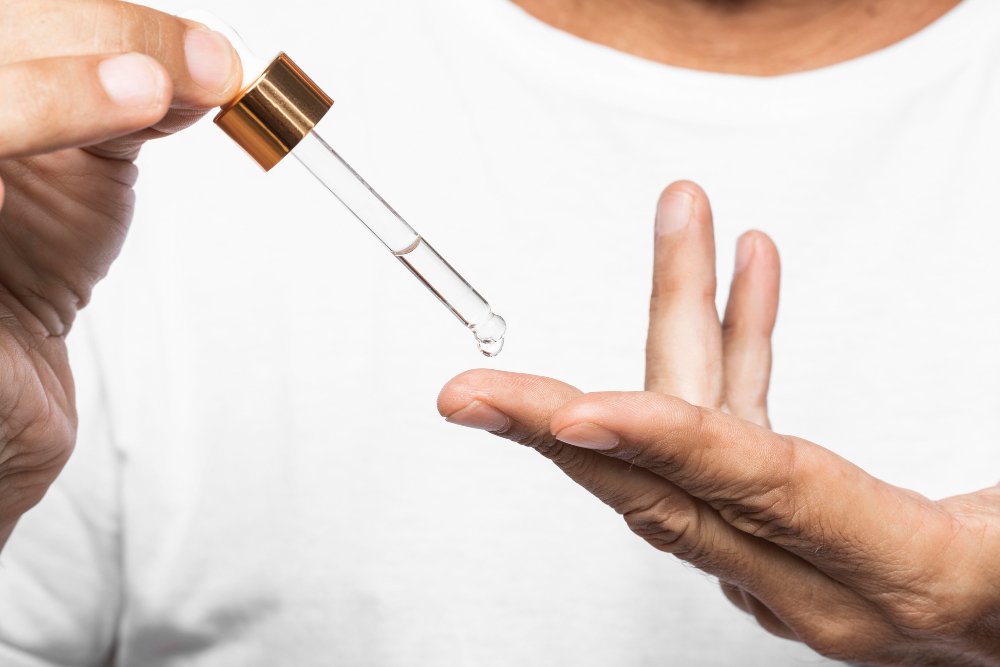If you’re worried about fine lines, wrinkles, or dull, uneven skin tone, you’re not alone. Premature aging is a growing concern for many women today—and the skincare world has responded with a wide variety of treatments.
But two ingredients keep popping up in the conversation: retinol and bakuchiol.
So, let’s break it down in plain English: What’s the real difference between these two anti-aging powerhouses? Which one should you trust to smooth out your skin and slow down aging without the drama?
Table of Contents
Retinol: The Gold Standard With a Powerful Punch
Retinol has been around for decades. Dermatologists swear by it—and for good reason. This vitamin A derivative can do wonders when it comes to stimulating collagen, speeding up cell turnover, and helping the skin repair itself.
If you’re looking for results, retinol delivers.
But here’s the kicker: it doesn’t come without consequences. For many women, the initial weeks of using retinol can feel like a battle. Redness, flaking, and peeling? Yep, that’s normal—especially if you jump in too quickly.
Most Products Sit on Your Skin—This One Works From the Inside Out. Discover the Renewal Secret Everyone’s Talking About!
What Retinol Really Does for Your Skin
Retinol goes deep—literally. It reaches into the skin’s lower layers and pushes your cells to work faster and smarter, improving everything from texture to pigmentation.
Some of its key benefits include:
- Reducing fine lines and deep wrinkles
- Fading sunspots and hyperpigmentation
- Smoothing rough patches and improving tone
But here’s what you need to know: you must wear sunscreen. Retinol makes your skin more sensitive to sunlight. Also, it’s not ideal during pregnancy or if your skin is super reactive.
Retinol Side Effects to Be Aware Of
Let’s be real. Retinol can be harsh, especially in the beginning. Some common side effects include:
- Dryness and peeling
- Redness and irritation
- Increased sun sensitivity
And if you have darker skin, retinol might even cause temporary hyperpigmentation when overused or not paired with proper hydration.
Don’t Just Hydrate—Transform. This Unique Formula Replaces Old Skin Cells With Fresh Ones—Find Out What Makes It So Different.
Bakuchiol: The Natural, Gentler Alternative
Now, let’s talk about bakuchiol, a plant-based ingredient that’s getting a lot of buzz—and for good reason. It’s extracted from the babchi plant (Psoralea corylifolia) and brings a softer, calmer approach to anti-aging care.
Even though bakuchiol is natural, don’t mistake it for weak. Clinical studies show that it can perform similarly to retinol in reducing wrinkles and evening out skin tone—without the redness, flaking, or irritation.
What Makes Bakuchiol a Strong Competitor
Bakuchiol has antioxidant, anti-inflammatory, and collagen-boosting properties—just like retinol. But it’s a lot kinder to your skin. If your skin reacts to everything, bakuchiol might be the answer you’ve been looking for.
Here’s what bakuchiol does well:
- Fights signs of aging (yes, including wrinkles!)
- Helps brighten skin tone and reduce dark spots
- Soothes inflammation and promotes healing
- Is safe for sensitive skin types and even during pregnancy
And best of all? You can use it day or night, without the fear of sun sensitivity.
Compare Retinol and Bakuchiol in Terms of Results and Side Effects
Let’s get to the point—how do these two stack up side by side?
| Feature | Retinol | Bakuchiol |
|---|---|---|
| Proven results | ✔️ Decades of studies | ✔️ Promising newer data |
| Collagen production | ✔️ Yes | ✔️ Yes |
| Cell turnover | ✔️ Strong stimulation | ✔️ Gentle stimulation |
| Risk of irritation | ❌ High | ✔️ Very low |
| Safe during pregnancy | ❌ No | ✔️ Yes |
| Sun sensitivity | ❌ Increases sensitivity | ✔️ No impact |
| Suitable for sensitive skin | ❌ Often too harsh | ✔️ Great option |
Why Keep Rubbing in Products That Only Mask the Problem? This One Tackles Skin Aging From a Whole New Angle — See How It Works Here.
So, Which One Should You Use?
- If you want fast, visible results and you’re okay with a bit of flaking and adjustment, retinol could be your best bet.
- If you prefer a gentler, natural approach with less risk of irritation, bakuchiol is worth a try—especially if you have sensitive or reactive skin.
Some skincare experts even recommend alternating or combining the two under professional guidance to get the best of both worlds.
How to Start With Retinol or Bakuchiol Without Damaging Your Skin
Whichever you choose, ease into it. Here’s how:
Retinol Tips:
- Start with a low concentration (0.25% or 0.5%)
- Use only at night, 2–3 times a week
- Always follow with moisturizer and SPF during the day
- Expect some adjustment period
Bakuchiol Tips:
- Can be used morning and night
- Works well for all skin types, including sensitive and acne-prone
- Look for serums or moisturizers with bakuchiol clearly listed as an active
- Minimal risk, but always do a patch test first
Final Thoughts: What’s Better for Premature Aging—Retinol or Bakuchiol?
Honestly, there’s no one-size-fits-all answer here. Retinol is still the most studied, dermatologist-approved ingredient for reversing visible signs of aging—but it demands patience and can irritate the skin.
Bakuchiol, on the other hand, is the newer, natural player that mimics retinol’s results without the drama. It’s ideal if you’re looking for a gentle, clean beauty option that still delivers noticeable improvements.
Bottom line? Think about your skin type, your lifestyle, and how much irritation you’re willing to deal with. You don’t have to suffer to see results. There’s a smarter way to age beautifully—on your own terms.

